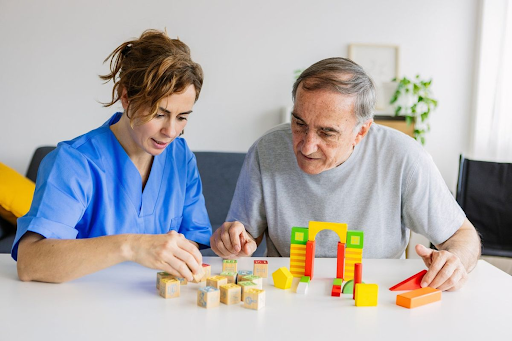Living with Alzheimer’s disease can be challenging, not only for those diagnosed but also for their families. Memory lapses, confusion, and changes in mood gradually affect daily life. While there is no cure, various approaches known as Alzheimer’s treatment options aim to improve quality of life and help individuals maintain independence for as long as possible. These options range from medication to lifestyle strategies, each tailored to support mental and physical well-being. Understanding these options allows families to create a supportive environment and manage the daily hurdles of this condition more effectively.
Medication Management For Alzheimer’s Patients
Medications play a crucial role in managing Alzheimer’s symptoms. Drugs like cholinesterase inhibitors help improve communication between nerve cells in the brain. Others, like memantine, assist in regulating brain activity linked to memory and thinking. Consistent medication schedules can reduce confusion and mood swings. Properly managed, these alzheimer’s treatment options allow patients to perform routine tasks more easily, keeping them engaged and confident in their daily lives.
Cognitive Stimulation Activities
Cognitive exercises are another key component of Alzheimer’s treatment options. Puzzles, memory games, and reading activities stimulate the brain and slow cognitive decline. Engaging in such exercises can help maintain memory function and problem-solving skills. Families who incorporate cognitive activities into daily routines often notice improvements in attention span and mood. These small victories reinforce independence and make day-to-day life less frustrating for the person with Alzheimer’s.
Supportive Care Environments
Creating a safe and supportive living space is essential for Alzheimer’s patients. Simplifying the home environment and using reminders can prevent accidents and reduce stress. Structured routines help patients anticipate daily activities, which can minimize confusion and agitation. Supportive care is often paired with Alzheimer’s treatment options to maximize their benefits. This combination ensures that patients can navigate their homes safely and retain a sense of normalcy in their daily routines.
Physical Activity And Wellness Programs
Regular physical activity supports both mental and physical health in Alzheimer’s patients. Gentle exercises like walking, stretching, or yoga improve circulation, balance, and mood. Exercise programs integrated into Alzheimer’s treatment options also enhance energy levels and reduce the risk of secondary health issues. Staying active can promote better sleep patterns and reduce anxiety, giving patients more confidence in performing daily tasks.
Nutritional Support For Cognitive Health
Proper nutrition is a subtle but powerful aspect of Alzheimer’s treatment options. A balanced diet rich in fruits, vegetables, and omega-3 fatty acids supports brain function. Hydration and consistent meal routines prevent fatigue and confusion. Families who focus on nutritional support often notice improved alertness and engagement from their loved ones. This approach ensures that patients have the physical strength and mental clarity needed to tackle daily activities.
Emotional And Social Support Systems
Emotional well-being significantly impacts the effectiveness of Alzheimer’s treatment options. Support groups, social interactions, and counseling help patients feel connected and understood. These interactions reduce feelings of isolation and depression, which are common among individuals with Alzheimer’s. Emotional support strengthens resilience, making it easier for patients to cope with the changes in memory and cognition that affect their daily lives.
Conclusion
Alzheimer’s treatment options provide more than just symptom management—they empower patients to live with dignity and independence. By combining medication, cognitive stimulation, supportive care, physical activity, proper nutrition, and emotional support, families can improve daily living for their loved ones. While the journey is challenging, understanding and implementing these strategies makes life more manageable and fulfilling, offering hope and stability amid the uncertainties of Alzheimer’s disease.
